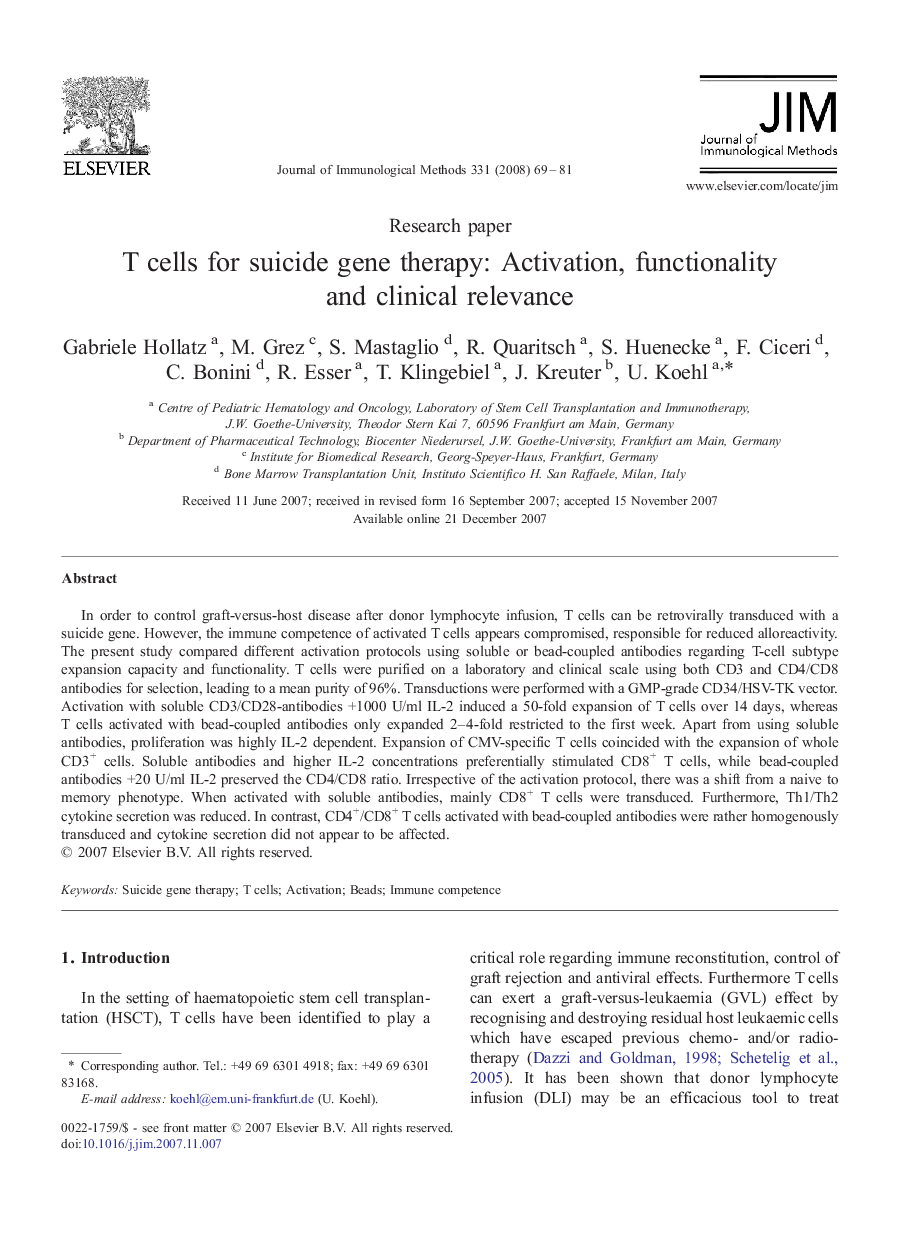| Article ID | Journal | Published Year | Pages | File Type |
|---|---|---|---|---|
| 2089005 | Journal of Immunological Methods | 2008 | 13 Pages |
In order to control graft-versus-host disease after donor lymphocyte infusion, T cells can be retrovirally transduced with a suicide gene. However, the immune competence of activated T cells appears compromised, responsible for reduced alloreactivity. The present study compared different activation protocols using soluble or bead-coupled antibodies regarding T-cell subtype expansion capacity and functionality. T cells were purified on a laboratory and clinical scale using both CD3 and CD4/CD8 antibodies for selection, leading to a mean purity of 96%. Transductions were performed with a GMP-grade CD34/HSV-TK vector. Activation with soluble CD3/CD28-antibodies +1000 U/ml IL-2 induced a 50-fold expansion of T cells over 14 days, whereas T cells activated with bead-coupled antibodies only expanded 2–4-fold restricted to the first week. Apart from using soluble antibodies, proliferation was highly IL-2 dependent. Expansion of CMV-specific T cells coincided with the expansion of whole CD3+ cells. Soluble antibodies and higher IL-2 concentrations preferentially stimulated CD8+ T cells, while bead-coupled antibodies +20 U/ml IL-2 preserved the CD4/CD8 ratio. Irrespective of the activation protocol, there was a shift from a naive to memory phenotype. When activated with soluble antibodies, mainly CD8+ T cells were transduced. Furthermore, Th1/Th2 cytokine secretion was reduced. In contrast, CD4+/CD8+ T cells activated with bead-coupled antibodies were rather homogenously transduced and cytokine secretion did not appear to be affected.
